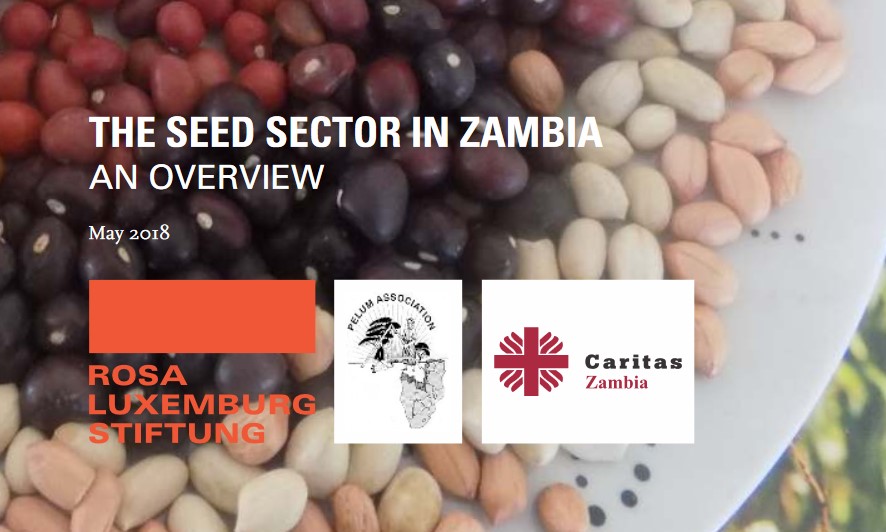Zambia's maize seed industry is currently one of the strongest and most competitive in Sub- Sahara Africa. The seed sector in Zambia is highly pluralistic and divided into the formal and informal sector. The informal sector is mainly comprised of farmer managed seed systems (FMSS) and some Non-Governmental Organizations (NGOs) that seek to promote the sector. In this system, farmers are free to share and exchange their seeds for both monetary and none monetary items such as food items or labor. Furthermore, the informal seed sector represents a rich cultural heritage of Africa's local communities. However the push to transform the seed sector into income-generating commercialized entity owned by a few and to marginalize traditional seed varieties, is still making more headway on paper than in practice.
The other side is the formal sector which is monopolized mainly by foreign multinational companies. These seed companies have different stakes in the seed sector with some having more influence on policies and legislation governing the seed sector in comparison to that exerted by the informal sector. Most of these companies are foreign-owned and do not serve the interests of the local seed industry but focus more on corporate profits. The interests of these companies are neither farmer-based seed systems nor do they support farmers' rights.
This study aims to analyze the political and socioeconomic dynamics of the seed sector in Zambia and to give an overview of the legal frameworks, key actors and policies in the sector. It unpacks the critical social, economic, and political issues that surround the seed sector in Zambia. Based on interviews with stakeholders, the major challenges are identified and strategic interventions in line with identified political and socioeconomic dynamics are proposed.
GET THE ENTIRE REPORT HERE: http://www.caritaszambia.org/phocadownload/research_reports/seed-publication-may-2018.pdf


